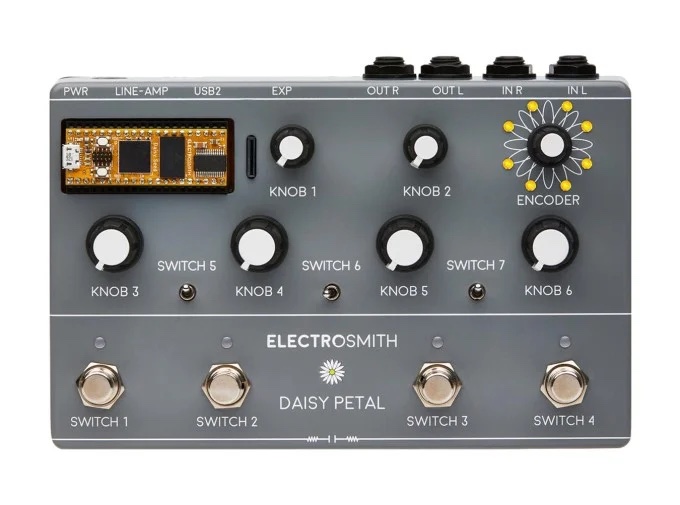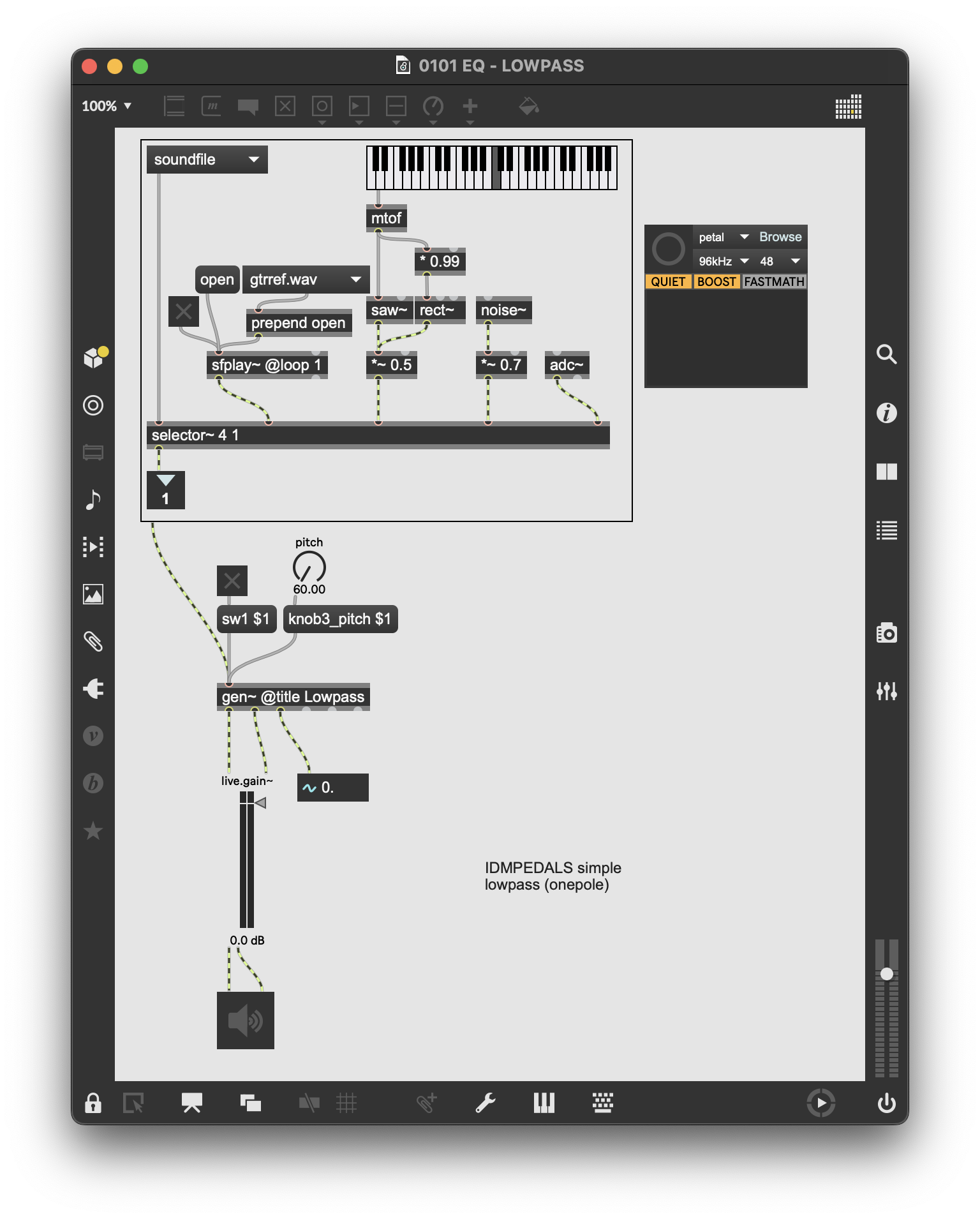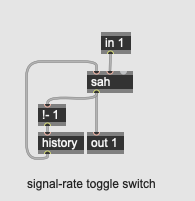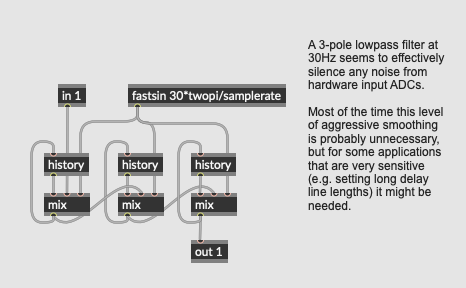IDM Pedals
Effect Pedals for the Electrosmith Daisy
OverviewGlossary
Pedals
NYU Integrated Design & Media
IDM PEDALS
How to make effect pedals based on the Electrosmith Daisy!
NYU Tandon Undergraduate Summer Research Project, 2021-22
Last updated Fall, 2022.
Overview
IDM Pedals is an open-source repository of audio signal processing algorithms designed, from a user experience standpoint, to be deployed as effects pedals. The repository contains software implementations of a wide variety of effects, ranging from canonical 1960s analog distortions to common digital effects from the 1980s to studies on more modern and esoteric effects. The repository consists of Max/MSP patches written in the gen~ language and intended to be used with the Electrosmith Daisy platform; the system used in this repository can be easily adapted to other architectures, however, including software-only (VST, Max4Live), or other embedded implementations (via the C++ code export or the RNBO system).
The project is intended to be a resource for people interested in learning about:
- Digital signal processing algorithms specifically designed for modifying an input audio signal (“audio effects”)
- Historical analog and digital audio effects design
- Effects pedals
- The gen~ architecture of Max and the Electrosmith Daisy platform
- Any combination of the above
Oopsy basics
The IDM Pedals project uses the oopsy package to transmit gen~ patches in Max/MSP directly to an Electrosmith Daisy chip. The patches in this repository are designed for the Daisy Petal prototyping board:

The patches contained in the repository consists of numbered and categorized Max/MSP patches that each contain a gen~ subpatch to be uploaded to the Daisy chip. The gen~ patcher is the actual effect algorithm; the host Max/MSP patch contains objects for previewing and working with the patch in Max.
The Max/MSP patches all rely on a bpatcher object called “testinput_bpatch.maxpat”, as well as toggle and live.dial objects to simulate using the effect within Max, e.g.:

An oopsy bpatcher in each patch (seen in the upper-right of the example above) allows you to transmit the gen~ code to the Daisy directly from Max. If you double-click the gen~ object in the middle of the patch, you will see the actual effect algorithm that will be sent to the chip.
There are a number of utility abstractions used by the gen~ code in this project, most notably:

This is a “software toggle” algorithm to allow the left-hand toggle switch on the Daisy Petal board to act as a bypass switch for the effect. If you want to use these algorithms in a different context, this is probably the first thing you would remove.

This is a third-order smoothing filter that is applied to many (but not all) knob inputs in the algorithms in this project; this helps prevent any A/D jitter from the analog controls on the physical pedal from having a negative effect on the effect’s behavior.